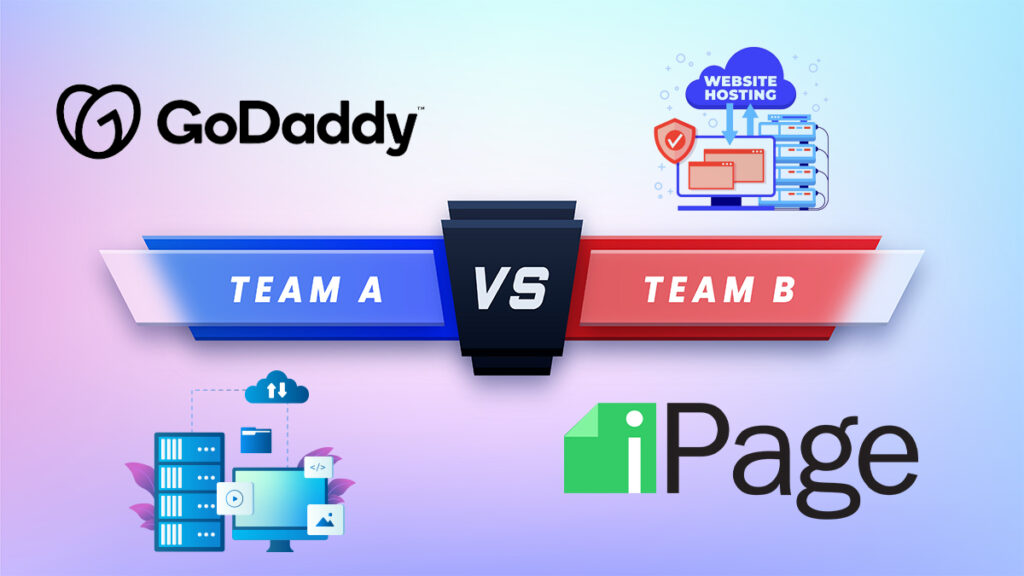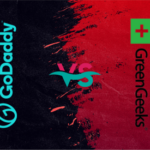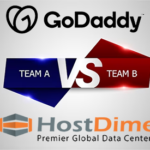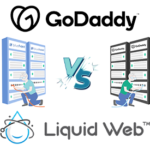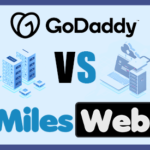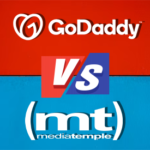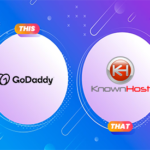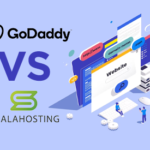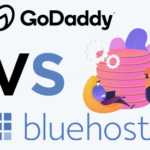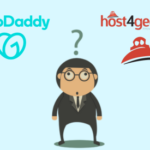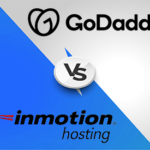Godaddy and iPage are well-known names in the budget-friendly web hosting industry. These web hosting service providers primarily cater to customers who own a small business or operate a blog or website.
If you need to be more versed in web hosting, distinguishing between iPage and GoDaddy can be challenging, as both companies present themselves favorably on paper. We’ve comprehensively compared GoDaddy and iPage to simplify your decision-making process, evaluating them based on various features and performance metrics.
This GoDaddy Vs iPage web hosting comparison encompasses all the essential information you, as a prospective customer, should consider before selecting a web hosting plan from either.
GoDaddy Vs iPage Comparison
Ease of Use
Certainly! Here’s the information about GoDaddy and iPage control panels, one-click installers, and website navigation, rephrased:
Control Panels
GoDaddy and iPage utilize distinct control panels. The widely acclaimed cPanel, known for its user-friendly graphical interface, is considered the industry standard. It provides easily recognizable icons for efficient website administration. While GoDaddy incorporates most features of the standard cPanel, it employs a customized interface. For Windows plans, GoDaddy opts for the industry-standard Plesk.
One-Click Installer
GoDaddy facilitates swift app installations with its one-click installer, offering access to various applications through the control panel. iPage, on the other hand, utilizes SimpleScripts, also a one-click installer, albeit with a slightly smaller selection of integrated applications. Both platforms support effortless one-click installations of WordPress.
Website Navigation
Both GoDaddy and iPage websites are rich in information. However, GoDaddy’s site offers a broader range of products alongside hosting, which may lead to a slightly more intricate navigation experience. This is due to the need for more extensive scrolling. iPage, while informative, may be somewhat intuitive, as certain information is exclusively found at the bottom of the page, in the footer section.
Readability and Uptime
Uptime is crucial for website accessibility. When a server experiences downtime, it leads to a loss of viewers. GoDaddy offers a guarantee of at least 99.9% uptime. If the uptime falls below 99.9% by 1% or more in a month, you receive a credit equivalent to 5% of that month’s hosting fee.
iPage, while lacking a formal guarantee, has maintained an uptime of 99.85% since 2005, which is still commendable.
Regarding hardware, GoDaddy employs Core i7 processors for its shared plans and Xeons for its VPS and dedicated plans. iPage utilizes Intel Xeon quad-core processors for their shared hosting servers.
Performance testing revealed that a website hosted on GoDaddy had a load time of 2.91 seconds, faster than 56% of the sites assessed with Pingdom. A comparable site on iPage had a load time of 3.31 seconds, outperforming 50% of the tested sites.
Customer Support
GoDaddy boasts an excellent customer support team with many contact options available.
You can reach their customer/client support via phone, which is available 24/7.
Alternatively, you can utilize the online chat feature for prompt issue resolution.
If those avenues don’t work for you, you can also email or post your question in the GoDaddy forum.
Moreover, GoDaddy provides customer support in various languages besides English, ensuring accessibility for non-English speakers.
Additionally, GoDaddy accepts payments in multiple currencies, not just USD. For example, if you’re based in India, you can pay in rupees.
Likewise, iPage Hosting offers three contact methods for its customer support team.
You can engage in a direct phone conversation, initiate a live chat, or fill out a form detailing your queries, with the customer support staff promptly getting back to you.
GoDaddy’s provision of customer support in multiple languages and acceptance of local currencies gives them an advantage over iPage.
Pricing and Plan
GoDaddy offers 3 shared hosting plans, available for both Windows and Linux. The features are consistent across both platforms. The Economy plan, priced at $3.99 per month, allows hosting for one website, unlimited bandwidth, and 100 GB of storage. The Deluxe plan, at $4.99 per month, and the Ultimate plan, at $7.99 per month, offer unlimited websites, bandwidth, and storage.
All plans include a complimentary year of domain registration with an annual subscription. The number of email accounts is limited to 100, 500, and 1000, respectively. Additionally, the Ultimate plan includes a free SSL for one year.
iPage simplifies the shared hosting selection process by offering one comprehensive plan. The Essential Plan, initially priced at $3.25 per month, encompasses all the features typically found in top-tier plans from other hosting providers. This includes unlimited domains, email accounts, databases, disk space, and bandwidth. The program also includes a free online store and a basic site lock service.
Additionally, iPage shared plans come with complimentary domain registration for the first year.
iPage Vs GoDaddy- Final Thoughts
Considering the factors outlined above, it is evident that both web hosts offer excellent value for money. However, given that iPage offers only one hosting plan, which may only suit some sizes of websites, GoDaddy emerges as the superior choice, especially if you have plans to scale your website in the future.
Furthermore, with its superior uptime, pricing, and performance, GoDaddy stands out as the clear winner compared to iPage.
If you are tasked with choosing between the two, we recommend GoDaddy.


